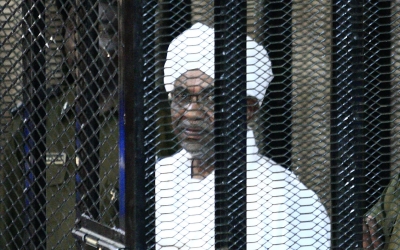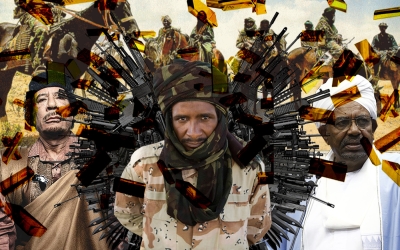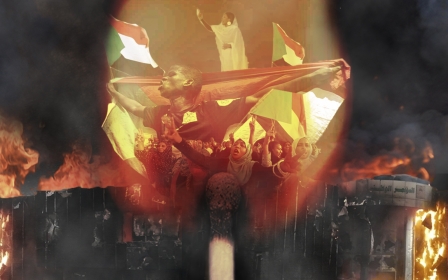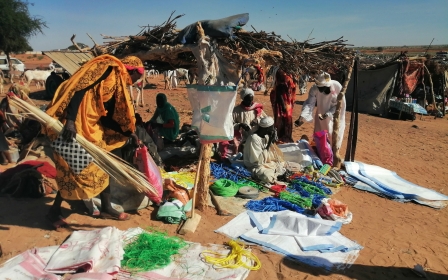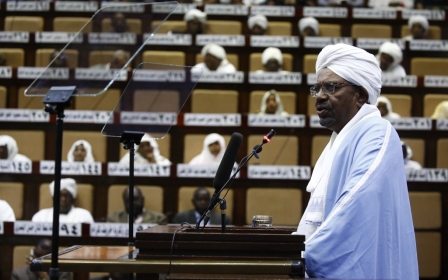Sudanese militia leader in ICC custody after 13 years on the run
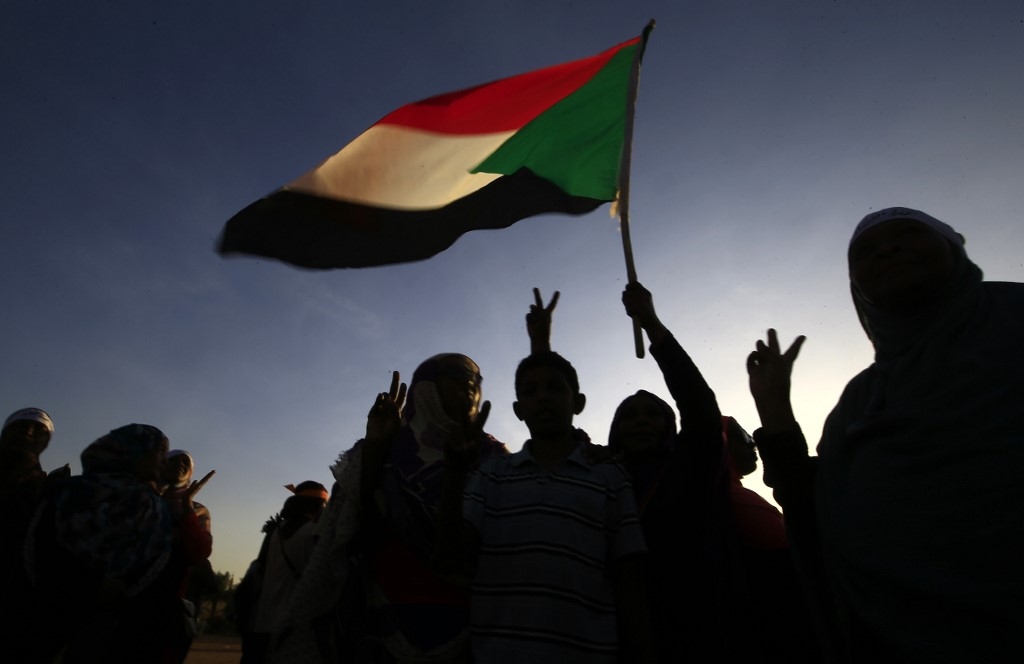
A former militia leader accused of war crimes in Sudan's Darfur region surrendered himself "voluntarily" to authorities on Tuesday and is now in the custody of the International Criminal Court (ICC).
Ali Kushayb was arrested after surrendering himself to authorities in a remote area of the Central African Republic (CAR), the ICC said in a statement. Following his arrest, he was transferred to the Hague where a warrant has awaited him since 2007.
Kushayb is accused of commanding the Janjaweed militia that attacked villages in Darfur between 2003 and 2004 as part of a strategy by the government of then-president Omar al-Bashir.
The warrant accuses the militia leader of war crimes as well as crimes against humanity, which includes murder, rape and pillaging.
'The surrender of Kushayb is the first surrender of a government militia perpetrator wanted by the ICC. We hope the transitional government will follow through with the other suspects, three of whom are in its custody in Khartoum'
- Jehanne Henry, HRW's Africa division director
Sources close to the matter told Middle East Eye that the operation that led to his arrest was carried out in part by a UN mission in CAR with logistical support from France and Holland.
New MEE newsletter: Jerusalem Dispatch
Sign up to get the latest insights and analysis on Israel-Palestine, alongside Turkey Unpacked and other MEE newsletters
The sources, who asked to remain anonymous due to restrictions against speaking to media, further revealed to MEE that other regional countries, including Chad, had also participated in the operation.
"Satellite monitoring, tracking and logistical assistance, including transportation to the capital of CAR and then to Hague," were sorted out between the different countries and organisations that took part in the operation, one source said.
"There has been information for a few months that showed Kushayb had left Darfur and entered CAR with around 600 militiamen from his old forces, which were mainly formed from his Arab tribe of Taaisha," the source said.
"There has been wide regional and international tracking of his movement over the past few months up until his arrest".
Movements were tracked
One source said Kushayb had been well-known as a strongman in the region, taking part in activities in Darfur as well as neighbouring countries, including CAR.
"Sudanese militias have supported the Seleka militia [in CAR] to seize power in the country, so his movements were important and tracked," the source said.
Mohamed Badawi, a Sudanese analyst and human rights defender with knowledge of the case, said it was likely some parties in Khartoum were also involved in the operation and may have convinced Kushayb to surrender.
Badawi told MEE that Kushayb's surrender was likely influenced by Khartoum's recent declaration to hand over all officials wanted by the ICC, including ousted president Bashir.
"We all knew that Kushayb himself is a key important witness that can give serious testimonies against [ousted] president Bashir and the other wanted officials," Badawi said.
Confirming his arrival at the Hague, the ICC on Tuesday said Kushayb surrendered himself "voluntarily".
"Mr. Kushayb is suspected of war crimes and crimes against humanity allegedly committed in Darfur, Sudan. The initial appearance of Mr Kushayb before the ICC Pre-Trial Chamber II will take place in due course," the statement said.
In a press release extended to MEE, the court has also confirmed that regional and
international efforts backed the operation of Kushayb's arrest.
"ICC Registrar Mr. Peter Lewis thanked the Minister of Justice Flavien M'Bata and the authorities of the Central African Republic, the French Republic, the Republic of Chad, as well as the leaders of the United Nations Multidimensional Integrated Stabilisation Mission in the Central African Republic (MINUSCA) and the authorities of the host State, the Netherlands, for their support to the Court and cooperation in the arrest, surrender and transfer of Mr. Kushayb to the Court," it said.
'A landmark day'
International human rights organisations welcomed the step, describing it as
a landmark for justice and the victims on the ground.
Elise Keppler, the associate director of Human Rights Watch's international justice programme, told MEE that the international community supported efforts to bring Darfur war criminals to justice.
"Today is a landmark day for justice for victims of atrocities committed across Darfur and their families. The world watched in horror as Sudan's government carried out brutal attacks on Darfur civilians - killing, raping, burning and looting villages, starting in 2003," Keppler said.
"After 13 years, justice has finally caught up with one major fugitive of the crimes, militia leader Ali Kushayb, as he has come into ICC custody."
Jehanne Henry, HRW's Africa division director, further urged the Sudanese authorities to hand over all the suspects to the international court.
"The surrender of Kushayb is the first surrender of a government militia perpetrator wanted by the ICC. We hope the transitional government will follow through with the other suspects, three of whom are in its custody in Khartoum," she told MEE.
Over a decade on the run
Kushayb, 63, was indicted by the ICC in 2007 alongside the former head of the ruling party Ahmed Haroun. He is believed to be one of the main recruiters of the Janjaweed militia accused of carrying out atrocities in Darfur since 2003.
"He is alleged to have implemented the counter-insurgency strategy of the Government of Sudan that also resulted in the commission of war crimes and crimes against humanity in Darfur, Sudan. Mr Kushayb is perceived to be the mediator between the leaders of the Janjaweed militia in Wadi Salih and the Government of Sudan," the ICC said in its statement.
"He is also alleged to have enlisted fighters, armed, funded and provided food and other supplies to the Janjaweed militia under his command, thereby intentionally
contributing to the above-mentioned crimes," it underscored.
"Ali Kushayb is alleged to have personally participated in some of the attacks against civilians namely in the towns of Kodoom, Bindist, Mukjar and Arawala between August 2003 and March 2004, where the killing of civilians, rape, torture and other cruel treatments occurred, therefore he allegedly committed, jointly with others, the above-mentioned crimes," the court added.
HRW's Africa division director added that Kushayb is also expected to be held accountable for more recent crimes.
"I documented the crimes in 2013 against the Salamat, but the ICC case is about the earlier 2003 crimes... still I think it's really important to point out the later crimes happened because Sudan wasn't serious about justice," Henry said.
Middle East Eye delivers independent and unrivalled coverage and analysis of the Middle East, North Africa and beyond. To learn more about republishing this content and the associated fees, please fill out this form. More about MEE can be found here.


